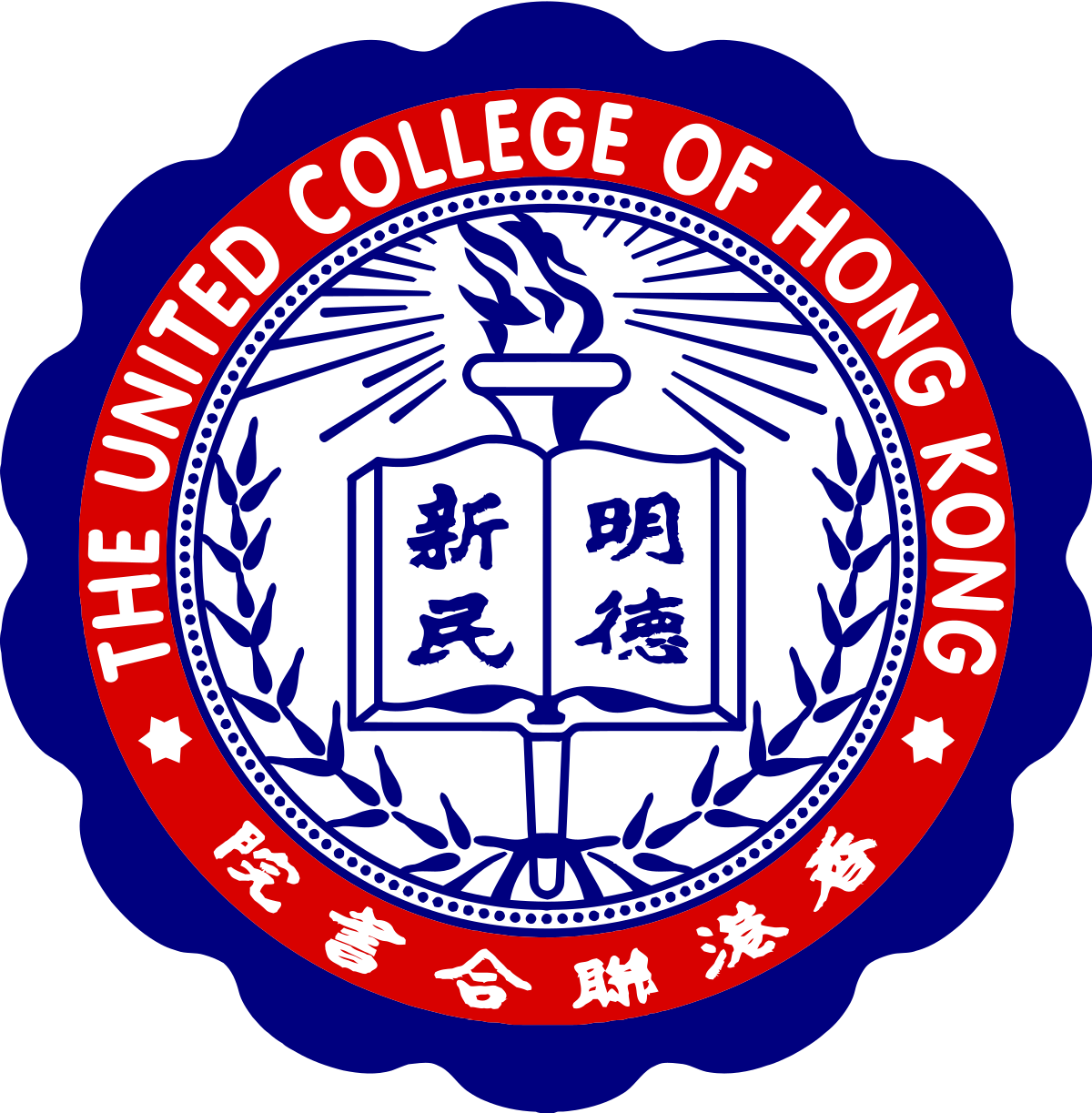United College: The Green Pioneer
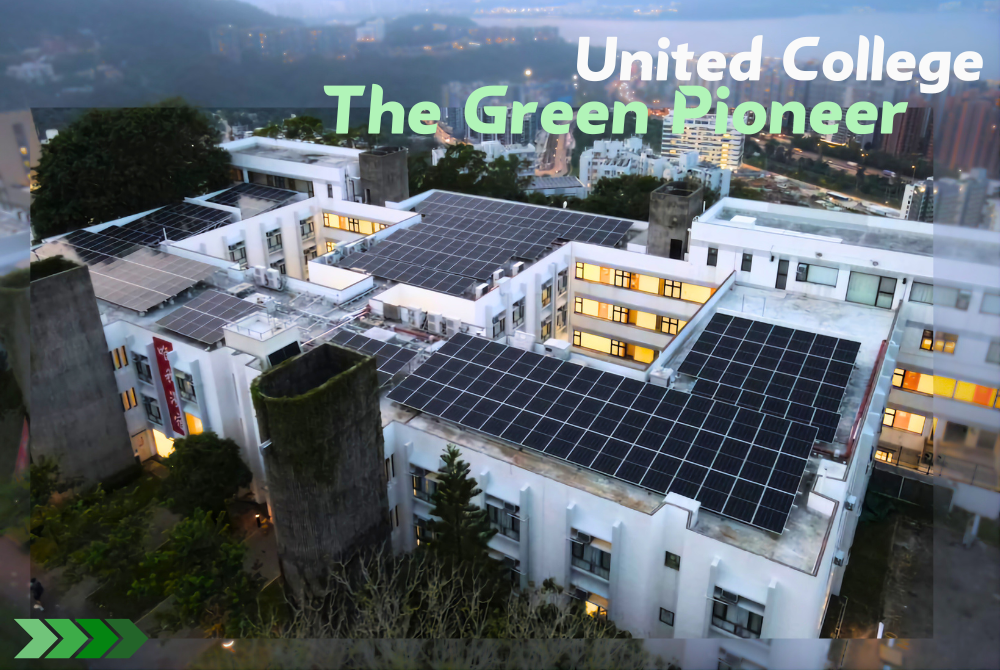
Interviewee:
Professor Jimmy C M Yu, Former College Head
Mr Benny P S Tam, Project Consultant
Dr Tony M H Chan, College Secretary
Mr Derek C W Yip, College Development Officer
Student Translator: Ms Lee Pui Yee Ruby (ENGE/3)
Student Editor: Ms Hau Wing Yin Pinky (TRAN/3)
As early as 20 years ago, United College set a territory-wide precedent by installing a large-scale solar water heater system on the Cheung Chuk Shan Amenities Building. Back then, solar panels cost around 10 times as much as they do now, so the College only installed solar water heaters to be economically wise. By transferring heat to water through heat pipes, less electricity will be consumed in hot water supply. The installation of a solar heater was proved to be a success, which paved way for its widespread of application in the remaining hostels and other facilities within the University. Professor Jimmy C M Yu, former College Head and former Chairperson of UC Environment Committee, said that it may be time to renew those heaters after their years of exposure to the elements. Compared to solar panels, solar water heaters have a limited scope of application. Wastage occurs when hot water is not used by students during daytime. Professor Yu giggled, “University students won’t shower till midnight!” While the swimming pool may fully utilise the solar water heater, its application in hostels may not yield the same level of advantages. In addition, the cost of installing solar panels has become relatively low and their performance has been greatly improved. Joining the Feed-in Tariff (FiT) Scheme introduced by the Government would even have extra income. “In order to benefit our students, it’s not just about cutting back, but also about exploring new sources of revenue.” Professor Yu emphasised. As a result, the College came up with the idea of installing solar panels on the rooftops of student hostels. The College would like to express its deep gratitude to Mr Benny P S Tam, the former Director of Estates Management Office, for his pivotal role as the project consultant in ensuring the smooth implementation of the project. The swift completion of the hostel’s rooftop solar panel installation was only made possible through the invaluable support and assistance of Mr Tam.
With the objective of promoting the use of renewable energy, the government introduced the FiT Scheme in 2018. This initiative aims to incentivise the public to install renewable energy equipment, such as solar panels, in their residences. Till the end of 2033, CLP Power Hong Kong and Hong Kong Electric will purchase renewable energy generated by the public at a rate higher than the normal electricity tariff rate. As of 26 Jan 2024, buyback prices ranged from $2.50 to $4 per kWh.
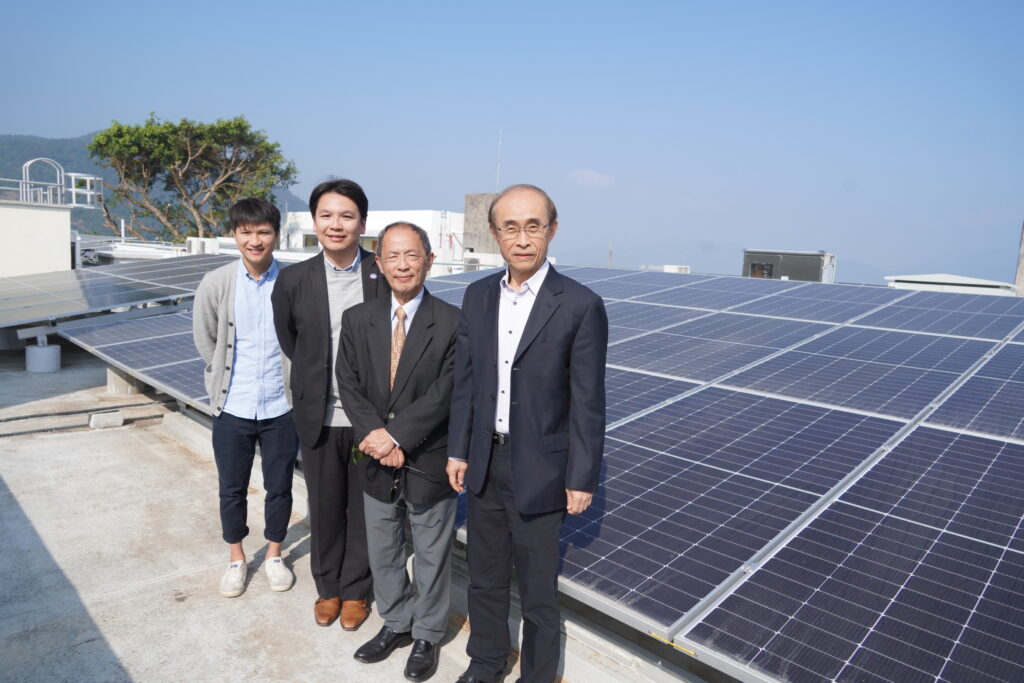
(From left) Mr Derek C W Yip, College Development Officer, Dr Tony M H Chan, College Secretary, Mr Benny P S Tam, Project Consultant, and Professor Jimmy C M Yu, Former College Head, were actively engaged in executing the Solar Panels Project.
Upon knowing the installation of solar panel in Professor Yu’s residence, Dr Tony M H Chan, College Secretary, was always thinking, “If home solar panels can be successful, why not explore the possibility of installing them on the rooftops of hostels?”. The College has long begun the preparation since 2020. At the end of last year, the first batch of solar panels were successfully installed on the rooftops of Adam Schall Residence (ASR), Bethlehem Hall (BH), and Hang Seng Hall (HSH). Dr Chan preliminarily estimated the College can recoup its initial investment within four years and the subsequent income will be utilised to support the hostel’s operations. “Install early, enjoy early. By installing the solar panels now, the College will have nearly a decade to gain net profit from the FiT Scheme.” While Chan Chun Ha Hostel (CCHH) was not included in the initial phase of the project due to the presence of a rooftop garden, which deviated from the design of other hostels. Yet, after consultation with the CCHH Residents’ Association on the unused space of the rooftop garden, the College has decided to use one-fourth of the area to install solar panels, and will implement the second phase of the project soon. Dr Chan is optimistic that after the cost recovery period, the additional income will help stabilising hostel fees so that all residents could benefit equally. Interestingly, Mr Tam, the project consultant, anticipates that students living on the top floors will be able to save some of the air-conditioning costs in the future. In summer, increase in room temperature is inevitable when the rooftop is consistently exposed to daylight. The installation of solar panels, which absorb incoming heat, will thus help lowering room temperature. This project is a win-win situation, contributing to both environmental conservation and saving money for students at the same time.
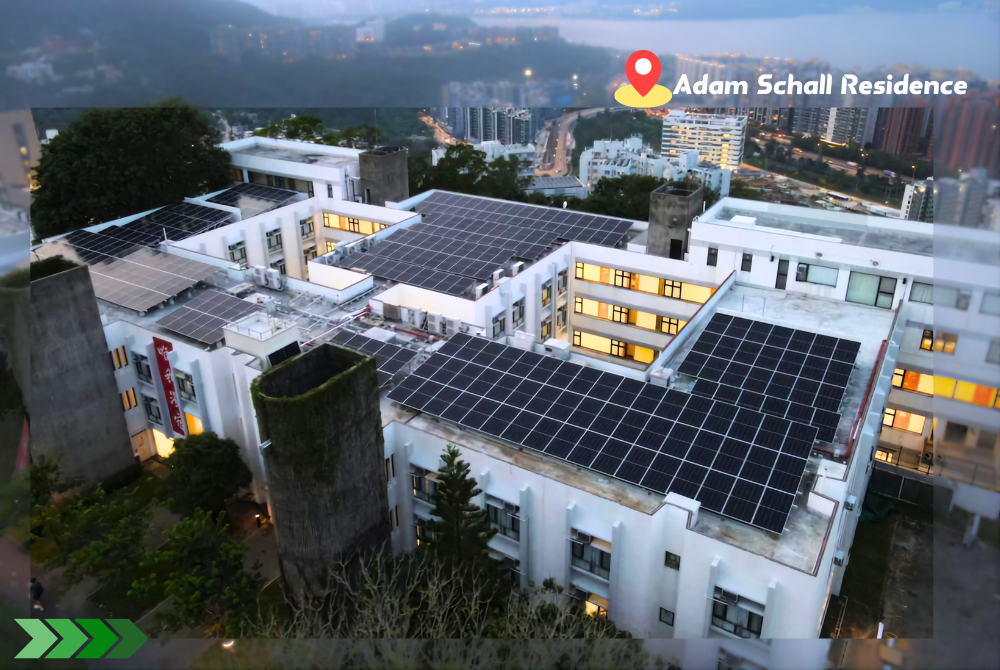
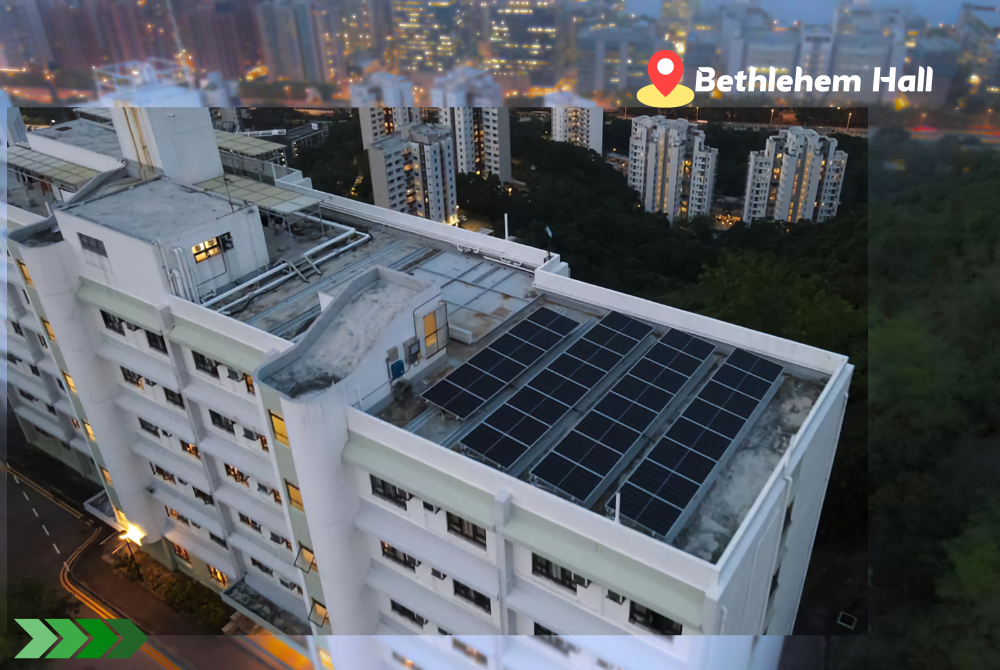
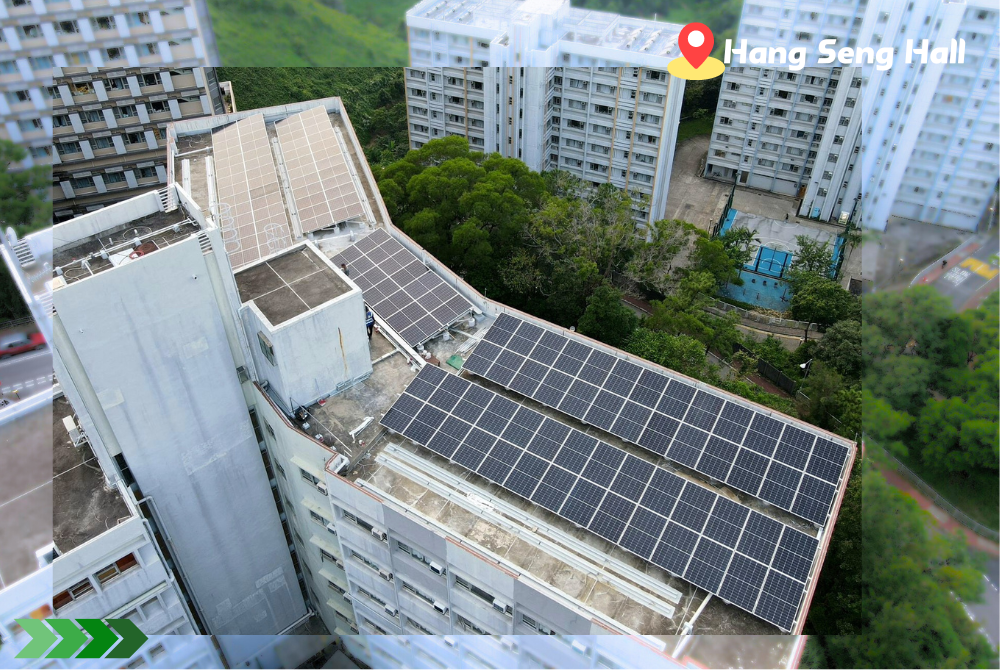
Currently, the College is exploring the possibility of installing solar panels on the roof of Thomas H C Cheung Gymnasium (UC Gym), Cheung Chuk Shan Amenities Building. Mr Tam believes gymnasium will be the best place to apply solar energy. “Flat space, soaring building, open surroundings! It’s simply perfect!” However, installing solar panels is more than just an empty talk. The College must first deal with issues of the roof’s water-proofness. Second, work safety on the unfenced rooftop will also be a concern. Lastly, it is important to reserve space for repairing. Installation of solar panels on unfenced rooftops involves various safety regulations, including the use of lighter solar panels, temporary practices in neighbourhood to ensure a safe working environment. Therefore, the College is extra cautious when selecting a contractor. Dr Chan made it clear that open tendering is not about finding the lowest bidder. Quality, cost, and rate of return are all factors they consider. While the College still faces small hurdles on its path to becoming a green college, Mr Tam remains steadfast in his confidence, “I am still very confident! Around 99% of confidence.” When asked if he is worried about the maintenance costs, Mr Tam said, the design should allow sufficient space to keep the solar panels sloped to shed water. By preventing water accumulation that leads to damage at the wiring terminals, repairing issues, be it big or small, can be reduced. “It may crash but won’t always break down!” Professor Yu giggled and shown his confidence in solar panel technology with the three and a half year of smooth solar panel operation in his residence.
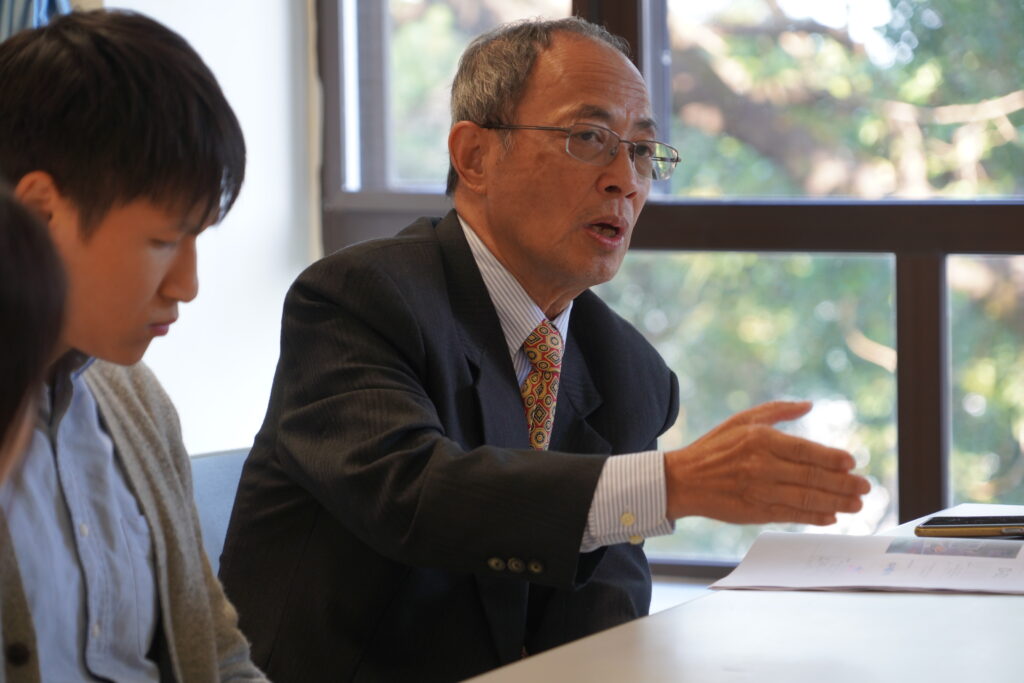
Mr Benny P S Tam, Project Consultant, explained details of the Solar Energy Project.
Following the successful completion of the first phase of the solar energy project, the College wasted no time in initiating the implementation of the second phase. Apart from CCHH and Cheung Chuk Shan Amenities Building aforementioned, Tsang Shiu Tim Building and T C Cheng Building will also be involved. The College is currently discussing with the chosen contractor to finalise the design and installation arrangements.
In the long run, the College also wishes for students to support the green campus scheme together. The UC Environment Committee organises various green activities regularly, including organic farming, and so on. Meanwhile, student hostel life is also a target, and the College is striving to instil sustainability awareness among students. ASR and CCHH are even participants of Jockey Club Sustainable Campus Consumer Programme. Inside the hostels, daily and monthly power usage will be displayed on screen to remind students to stay alert. Moreover, showerheads in CCHH are equipped with a water-saving system that reduces water output by one-third. Dr Chan believes, “It takes time to get used to green living. We hope all students can work together.” When asked about the controversial progressive tariff system on air-conditioning use, Dr Chan replied, the primary objective of the new system is to encourage students to reduce energy consumption. Students who use less power will be able to enjoy cheaper electricity rates than the original tariff, while students who use more need to pay more. Taking students’ feedback into account, the College will adjust the fees and adopt a progressive calculation of electricity consumption for the next academic year.

